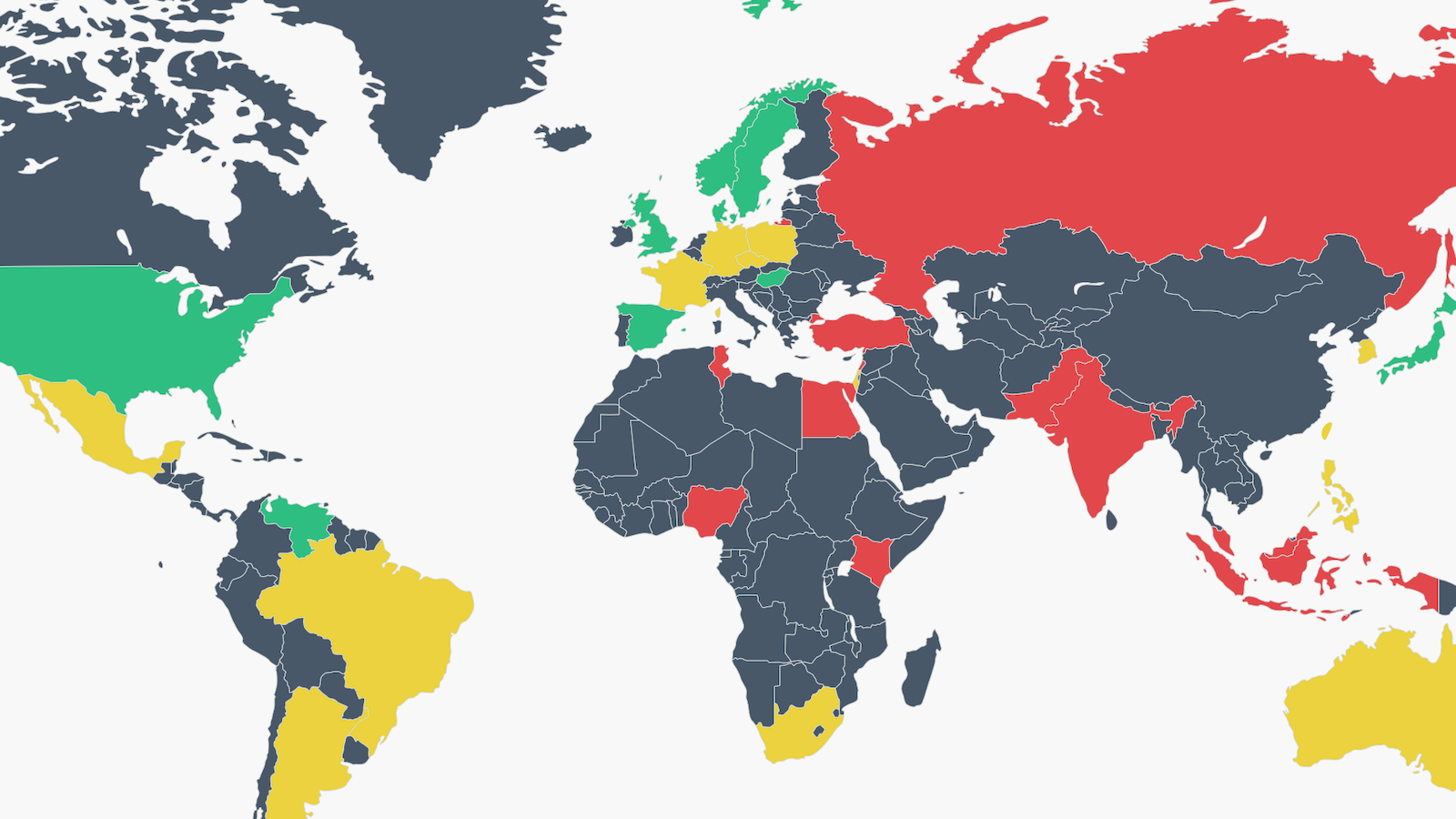NADINE STROSSEN: The classical liberal idea of free expression actually overlaps very extensively with the rules that the United State Supreme Court has enforced under the First Amendment and interestingly enough also overlaps with the rules that have been enforced under International Human Rights law. So, it really is a universally accepted standard that reduces the power of any external authority, in particular, government, to deprive individuals of the right to make our own decision about what we will say, what we will not say, what we will listen to, what we will not listen to.
Most people falsely assume one of two things, which are opposite from each other and yet they are equally wrong: On the one hand many people assume that freedom of speech is absolute that there can be no restrictions or limitations whatsoever. On the other hand, too many people think that there's no protection for certain kinds of unpopular speech such as so-called hate speech or pornography or terrorism speech to name a few that are constantly attacked.
The First Amendment freedom of expression rests upon two fundamental principles: one prescribes when government may not suppress speech, and the other explains when government may restrict speech in appropriately limited circumstances. So first, the non-censorship principle is often called or the content neutrality or viewpoint neutrality principle. Government may never suppress speech solely because of its content, its message, its viewpoint or ideas no matter how feared or despised or hated or hateful that idea, that content may be perceived as. Even by the vast majority of the community that is never enough to justify censoring it. If we disagree with an idea, if we despise it we should answer it back not suppress it. If however you get beyond the content of the speech, its message, and look at its overall context then government may restrict that speech consistent with what is usually called the emergency principal. If in a particular context that speech directly causes certain serious, imminent, specific harm and the only way to avert the harm is by suppressing the speech.
Now, the United States Supreme Court has created or recognized several categories of speech that satisfy that emergency principle. For example, intentional incitement of imminent violence where the violence is likely to actually happen imminently or targeted bullying or harassment that is directly targeted at a particular individual or small group of individuals and directly interferes with their freedom of movement. Another example that satisfies the emergency principle is what lawyers call a genuine threat or a true threat. And we use that adjective to distinguish it from the loose way that people tend to use the word threat in every day speech, I feel threatened that Milo Yiannopoulous is going to be speaking on my campus. No. That is not a justification for censorship. But if the speaker is directly targeting a small specific audience and intends to instill a reasonable fear on the part of that audience that they are going to be subject to some kind of violence then the speech can and should be punished.
One of the really important concepts that helps to enforce these big principles that government may not suppress speech because of disagreement with its idea, it may suppress speech if the speech poses an imminent danger of violence. It's really important to add into that the notion of hecklers veto, the fact that people who object to the speaker's ideas are threatening violence can never be a justification for the government to stop the speaker from proceeding with the talk. The government has to protect the speaker and the audience members who choose to hear that speaker against the violence by the protesters.







